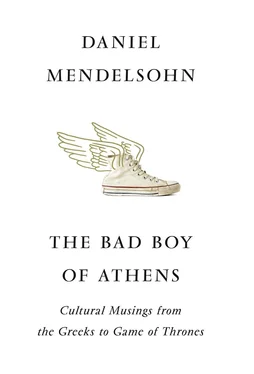His brilliant victory on the plain of Gaugamela in Mesopotamia in October, 331 BC, made him the most powerful man the world had ever known, ruler of territories from the Danube in the north, to the Nile valley in the south, to the Indus in the east. He was also the world’s richest person: the opulent treasuries of the Persians at Babylon, Susa, and Persepolis yielded him the mind-boggling sum of 180,000 silver talents – the sum of three talents being enough to make someone a comfortable millionaire by today’s standards.
After Gaugamela, Alexander, driven by a ferocious will to power or inspired by an insatiable curiosity (or both), just kept going. He turned first to the northeast, where he subdued stretches of present-day Afghanistan, Uzbekistan, and Tajikistan, and there took as a wife the beautiful Roxana, daughter of a local chieftain, much to the consternation of his xenophobic aides. Then he moved to the south, where his designs on India – he believed it to be bordered by the ‘Encircling Ocean’ which he longed to see – were thwarted, in the end, not by military defeat but by the exhaustion and demoralization of his men, who by that point, understandably, wanted to head back to Macedon and enjoy their loot. Himself demoralized by this failure in support, Alexander relented and agreed to turn back.
The westward return journey through the arid wastes of the Macran desert toward Babylon, which he planned to make the capital of his new world empire, is often called his 1812: during the two-month march, he lost tens of thousands of the souls who set out with him. That tactical catastrophe was followed by an emotional one: after the army regained the Iranian heartland, Alexander’s bosom companion, the Macedonian nobleman Hephaistion – almost certainly the King’s longtime lover, someone whom Alexander, obsessed with Homer’s Iliad and believing himself to be descended from Achilles, imagined as his Patroclus – died of typhus. (The two young men had made sacrifices together at the tombs of the legendary heroes when they reached the ruins of Troy at the beginning of their Asian campaign.) This grievous loss precipitated a severe mental collapse in the King, who had, in any event, grown increasingly unstable and paranoid. Not without reason: there were at least two major conspiracies against his life after Gaugamela, both incited by close associates who’d grown disgruntled with his increasingly pro-Persian policies.
Within a year, he himself was dead – perhaps of poison, as some have insisted on believing, but far more likely of the cumulative effects of swamp fever (he’d chosen, foolishly or perhaps self-destructively, to pass the summer in sultry, fetid Babylon), a lifetime of heavy drinking, and the physical toll taken by his various wounds. He was thirty-two.
There can be no doubt that the world as we know it would have a very different shape had it not been for Alexander, who among other things vastly expanded, through his Hellenization of the East, the reach of Western culture, and thus prepared the soil, as it were, for Rome and then Christianity. But as extraordinarily significant as this story is, little of it would be very interesting to anyone but historians and classicists were it not for a rather curious additional factor of what the Greeks called pothos – ‘longing’. The best and most authoritative of the ancient sources for Alexander’s career are the Anabasis (‘March Up-Country’) and Indica (‘Indian Affairs’) by the second-century-AD historian and politician Arrian, a Greek from Nicomedia (part of the Greek-speaking East that Alexander helped to create) who was a student of Epictetus and flourished under the philhellene emperor Hadrian. Throughout his account of Alexander’s life, the word pothos recurs to describe the yearning that, as the historian and so many others before and after him believed, motivated Alexander to seek far more than mere conquest.
The word is used by Arrian of Alexander’s yearning to see new frontiers, his dreamy desire to found new cities, to loosen the famous Gordian knot, to explore the Caspian Sea. It is used, significantly, to describe his striving to outdo the two divinities with whom he felt a special bond, Herakles and Dionysos, in great deeds. An excerpt from the beginning of the final book of Arrian’s Anabasis nicely sums up the special quality that the pothos motif lends to Alexander’s life, making its interest as much literary, as it were, as historical:
For my part I cannot determine with certainty what sort of plans Alexander had in mind, and I do not care to make guesses, but I can say one thing without fear of contradiction, and that is that none was small and petty, and he would not have stopped conquering even if he’d added Europe to Asia and the Britannic Islands to Europe. On the contrary, he would have continued to seek beyond them for unknown lands, as it was ever his nature, if he had no rival, to strive to better the best.
Конец ознакомительного фрагмента.
Текст предоставлен ООО «ЛитРес».
Прочитайте эту книгу целиком, на ЛитРес.
Безопасно оплатить книгу можно банковской картой Visa, MasterCard, Maestro, со счета мобильного телефона, с платежного терминала, в салоне МТС или Связной, через PayPal, WebMoney, Яндекс.Деньги, QIWI Кошелек, бонусными картами или другим удобным Вам способом.












